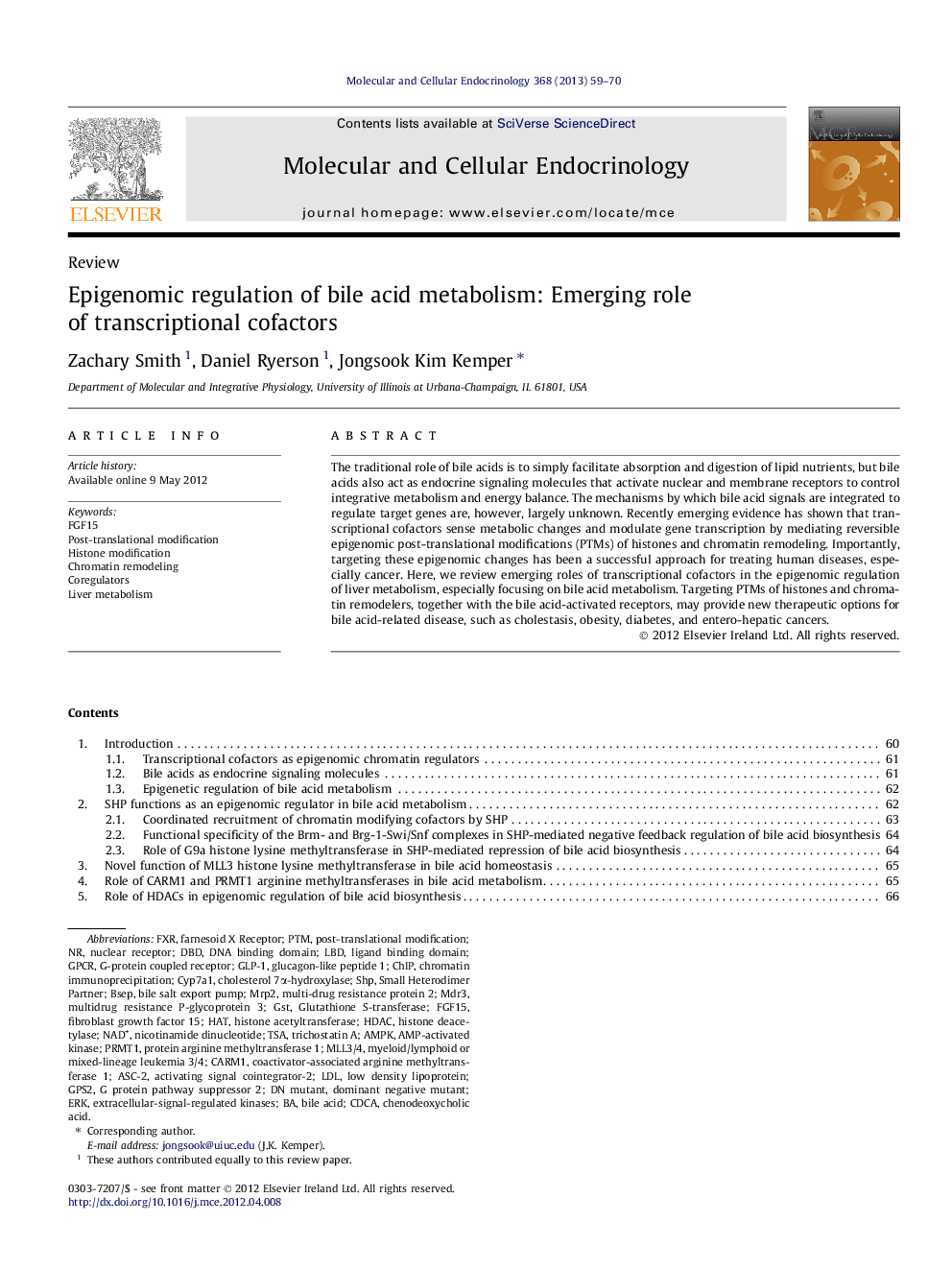| Article ID | Journal | Published Year | Pages | File Type |
|---|---|---|---|---|
| 2196181 | Molecular and Cellular Endocrinology | 2013 | 12 Pages |
The traditional role of bile acids is to simply facilitate absorption and digestion of lipid nutrients, but bile acids also act as endocrine signaling molecules that activate nuclear and membrane receptors to control integrative metabolism and energy balance. The mechanisms by which bile acid signals are integrated to regulate target genes are, however, largely unknown. Recently emerging evidence has shown that transcriptional cofactors sense metabolic changes and modulate gene transcription by mediating reversible epigenomic post-translational modifications (PTMs) of histones and chromatin remodeling. Importantly, targeting these epigenomic changes has been a successful approach for treating human diseases, especially cancer. Here, we review emerging roles of transcriptional cofactors in the epigenomic regulation of liver metabolism, especially focusing on bile acid metabolism. Targeting PTMs of histones and chromatin remodelers, together with the bile acid-activated receptors, may provide new therapeutic options for bile acid-related disease, such as cholestasis, obesity, diabetes, and entero-hepatic cancers.
► Bile acids control integrative metabolism and energy balance in the body. ► Bile acids are endocrine regulators that activate multiple signaling pathways. ► Transcription cofactors sense the signals and mediate epigenomic control of genes. ► Epigenomics may provide novel therapeutic options for bile acid-related disease.
